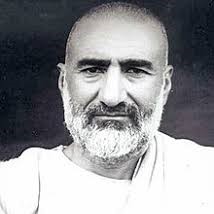Khan Abdul Ghaffar Khan

Khan Abdul Ghaffar Khan, also known as Badshah Khan and Bacha Khan, was born on February 6, 1890, in Utmanzai, in the present-day Peshawar region of Pakistan. After his initial studies, he was offered a position in the Corps of Guides, a regiment of the British Indian Army operating in the North-West Frontier Province (NWFP). However, he refused the commission after realizing that even Guides officers were treated as second-class citizens in their own country. At the age of 20, he opened a mosque school in his hometown.
Khan became a prominent Pashtun leader who worked towards the social upliftment of his people through education and unity. He met Mahatma Gandhi in 1928, and resonating with Gandhi’s ideas of non-violence and Satyagraha, Khan founded the Khudai Khidmatgar (Servants of God) Movement in 1929. The Khudai Khidmatgars, also known as the ‘Red Shirts,’ attracted many from traditional Pashtun families who joined the non-violent struggle against the British. The Khidmatgars actively participated in Gandhi’s Salt Satyagraha in 1930. As a result of his activism, Khan was imprisoned and tortured several times between 1920 and 1947.
Khan was a member of the Constituent Assembly representing NWFP and strongly opposed the partition of India on religious grounds. He felt a great sense of betrayal by both Pakistan and India. In response, Bacha Khan formed Pakistan’s first national opposition party on May 8, 1948 – The Pakistan Azad Party. Due to his continued activism, he was repeatedly arrested and later crossed the border to live in Afghanistan until his last days. In 1987, he became the first non-Indian to be awarded India’s highest civilian honor, the Bharat Ratna.
Trivia : For his close association with Mahatma Gandhi and belief in non-violence, Khan Abdul Ghaffar Khan earned the nickname “Frontier Gandhi.”
References:
- Frontier Gandhi: Khan Abdul Ghaffar Khan - The Better India
- Khan Abdul Ghaffar Khan - Byjus
- Khan Abdul Ghaffar Khan - Constitution of India